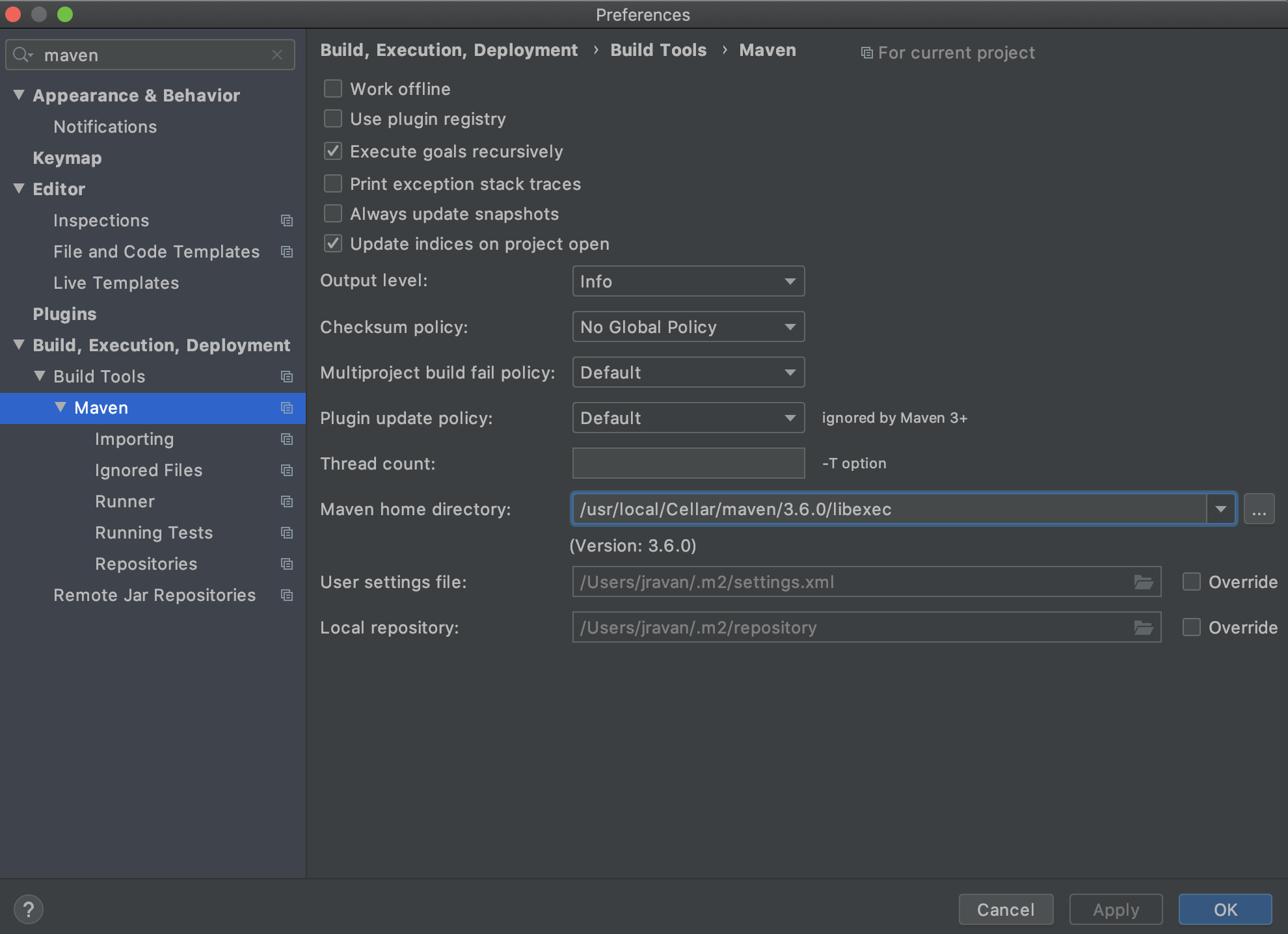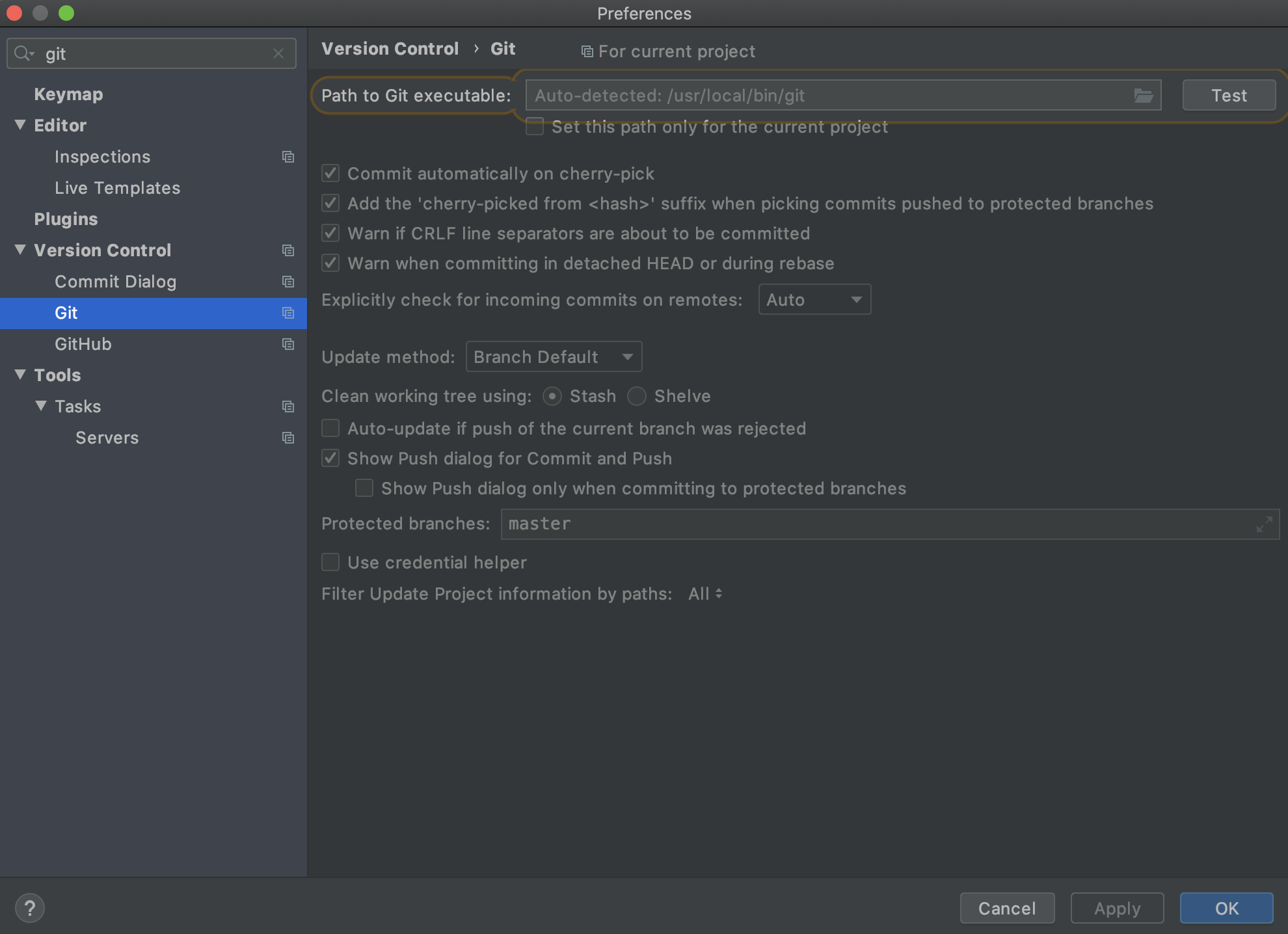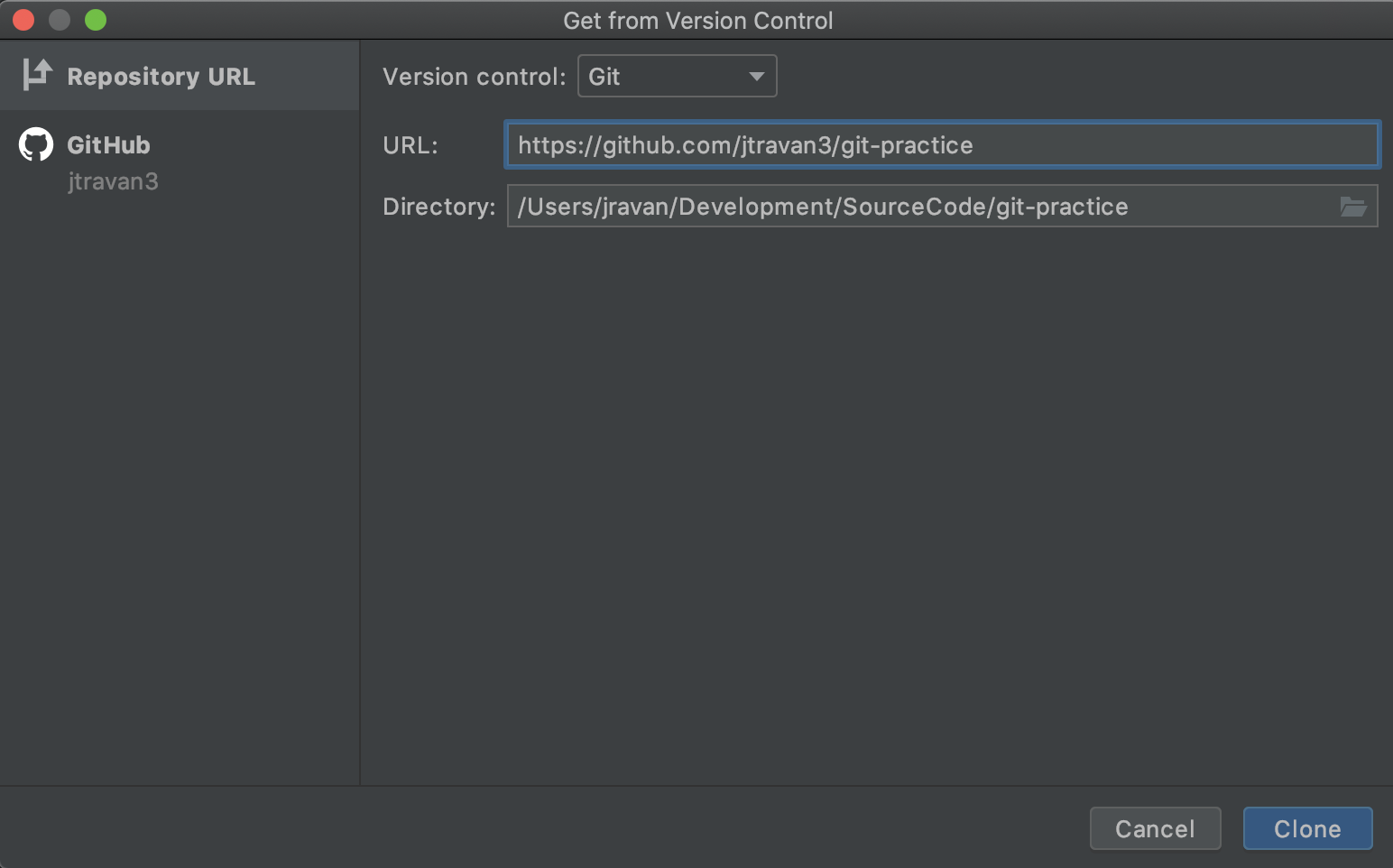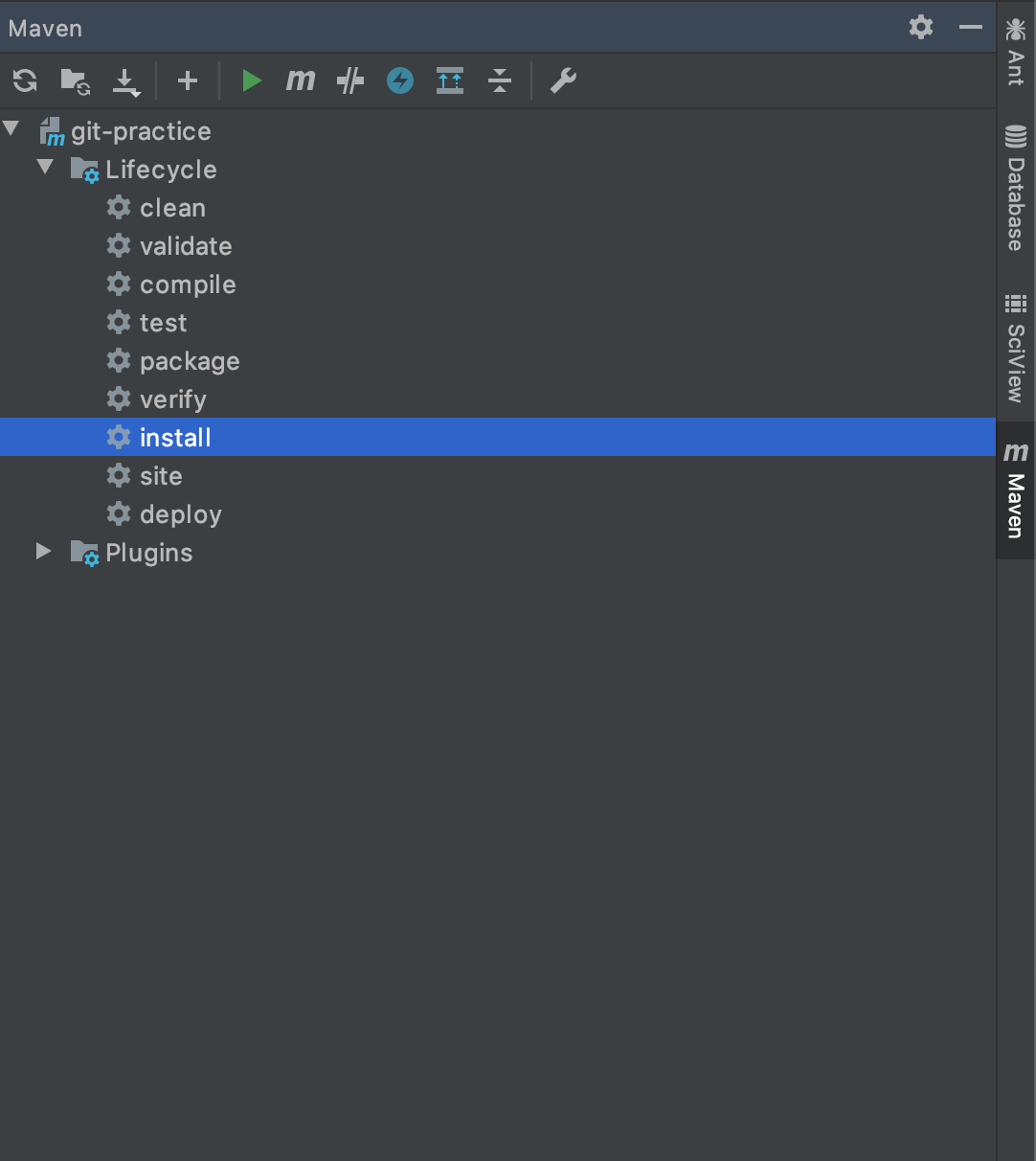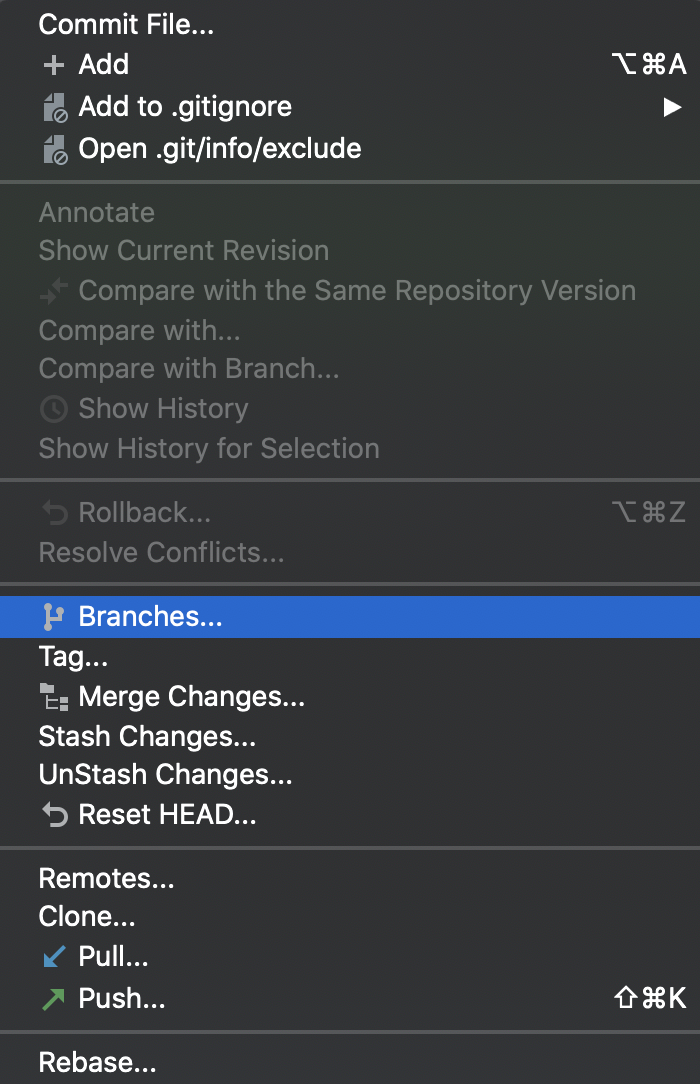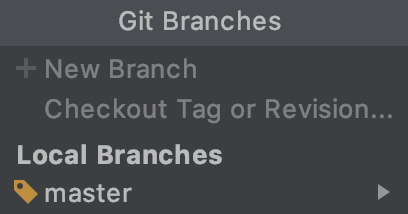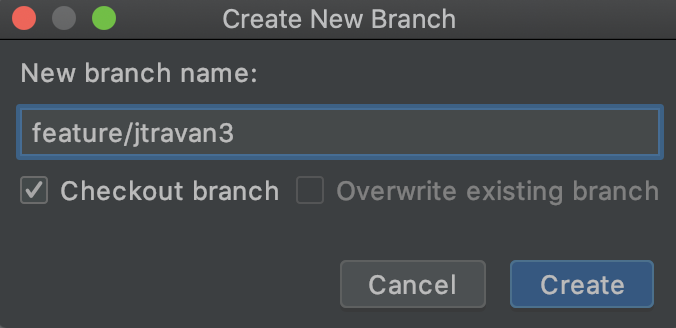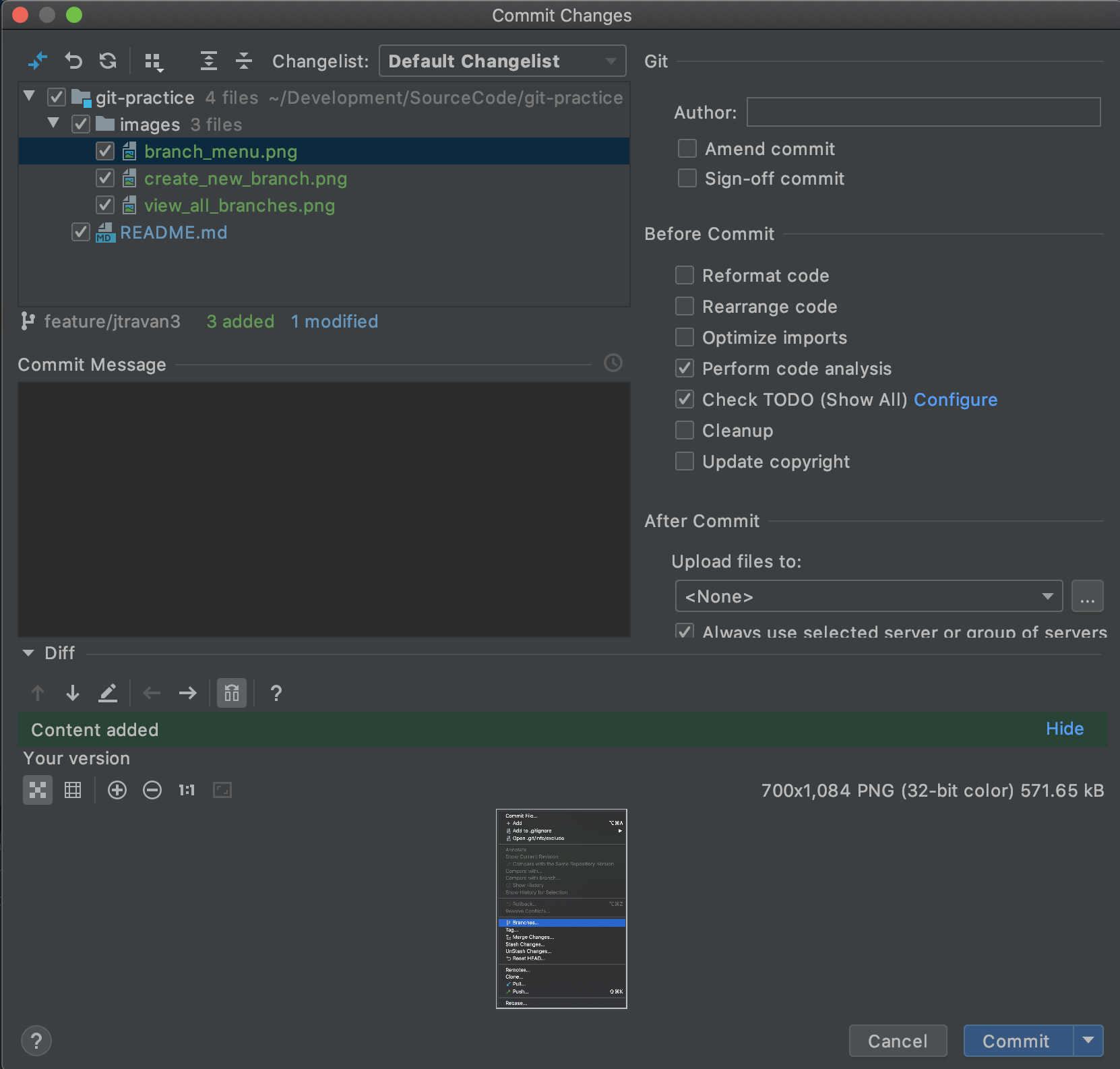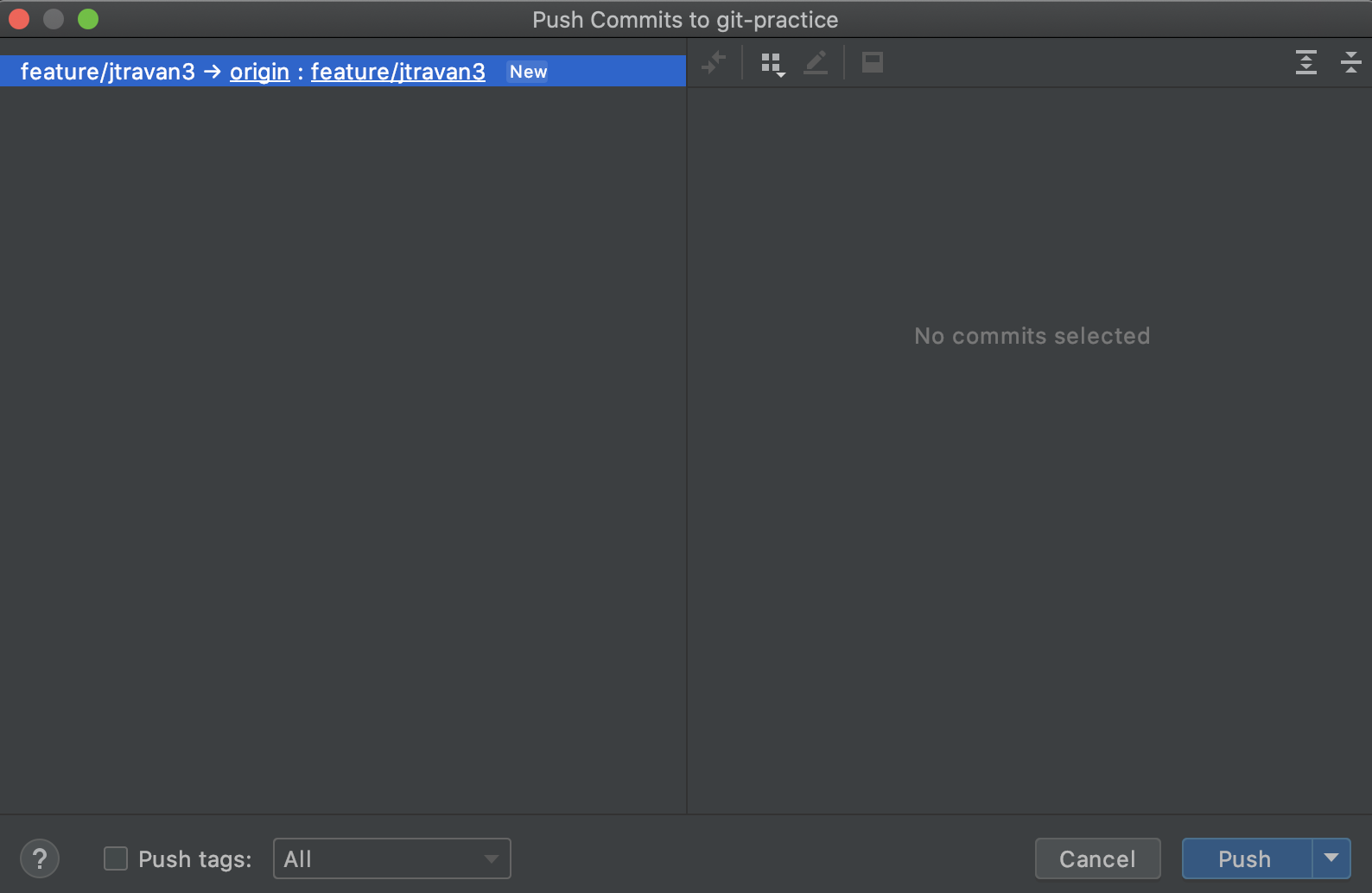This repository contains the needed base code and instructions for someone who is interested in learning or improving their git and Github skills.
This repository is designed so that anyone who is wanting to learn git or practice their git skills can do the following:
- Clone the repository to their local machine
- Make changes to files in the repository
- Commit those changes to a new branch named
feature/{githubUsername} - Push the branch to the repository
- Open a pull request on Github
I use the IDE IntelliJ for all coding examples. You can use any IDE that you choose (Eclipse, Netbeans, VS Code, etc.) however, I will only be able provide assistance for IntelliJ.
IntelliJ is quite expensive however students/instructors can receive a free license by filling out an application with their school email address. Simply go to https://www.jetbrains.com/student/ and fill out an application in order to receive your free license.
If you're interested in getting started with git, follow the instructions below to help you understand the process.
1.) First you will need the git command line tools. Download git located at https://git-scm.com/
or if you have a Mac you can use brew.
brew install git2.) Install maven 3.6.0 and Java JDK 11. JDK located at https://openjdk.java.net/install/ or if you have a Mac you can use brew. If you don't want to install Maven
you can use the ./mvnw wrapper command instead.
brew install maven
brew install javaIf you don't have the brew capability you'll have to install Maven directly. Navigate to https://maven.apache.org/download.cgi
and download apache-maven-3.6.3-bin.zip. After you have downloaded, place in a location on your computer that will not change (e.g. NOT your Downloads folder).
Then navigate to https://maven.apache.org/install.html and follow the instructions.
Make sure you have a JAVA_HOME environment variable, a MAVEN_HOME environment variable, and both added to your PATH
IntelliJ comes packaged with Maven so you want to make sure that the correct version of maven is being used. I recommend opening Preferences and searching
for Maven. You should see the following screen. Make sure that the selected maven executable is the one installed on your system and not the bundled version.
3.) Now that you have your environment setup you need to create a fork of the repository so that you can add changes. First navigate to https://github.com/CitadelCS/git-practice
and click Fork in the top-right of the page. This will create a copy of the repository in your Github account. Then clone down the repository from Github
git clone git@git.github.com:{yourGithubUsername}/git-practice.git4.) Build the project
./mvnw clean installYou should be able to run the HelloWorld program successfully if you have everything setup correctly.
5.) Now that you have your environment setup we'll want to make some changes to some files. For this repository you're going to make two changes. One will be a version change in
pom.xml and the second will be an entry in CHANGELOG.md.
6.) Navigate to pom.xml and increase the minor fix version by one. See the before and after example below.
Before
<groupId>edu.citadel</groupId>
<artifactId>git-practice</artifactId>
<version>1.0.1</version>After
<groupId>edu.citadel</groupId>
<artifactId>git-practice</artifactId>
<version>1.0.2</version>7.) Next navigate to CHANGELOG.md and add an entry for yourself. See the example below
## [1.0.1] - 2019/12/11
### Added
- John Ravan updated the version to 1.0.18.) After completing the file edits within your repository create a branch for the change
git checkout -b feature/{githubUsername}9.) Add all of your changed files to the newly created branch
git add .10.) Commit all of the added files to your branch with a message
git commit -m "I added myself to the CHANGELOG.md"11.) Now that all of your changes have been commit to the new branch, push the new branch to the remote repository.
git remote add origin https://github.com/username/repo-name_that_you_fork.git
git push origin feature/{githubUsername}12.) Visit the repository through https://github.com/{yourGithubUsername}/git-practice and open a pull request for merging your feature branch into
the master branch. From here, I'll review the pull request to make sure it looks great and then merge it in. You'll be added to the history of the CHANGELOG.md!
1.) While you'll be using IntelliJ for your git GUI, you'll still need the git command line tools so that IntelliJ can leverage them. Download git located at https://git-scm.com/
or if you have a Mac you can use brew.
brew install git2.) Then you will need the IntelliJ IDE located at https://www.jetbrains.com/idea/. Download and install.
3.) Once you have both installed you'll need to make sure that IntelliJ has them configured. If you used brew then it will probably
be configured automatically. If not you'll need to open Preferences and search for Git. Then make sure the git executable is added correctly
4.) Install maven 3.6.0 and Java JDK 11. JDK located at https://openjdk.java.net/install/. If you have a Mac you can use brew. If you don't want to install Maven
you can use the ./mvnw wrapper command instead.
brew install maven
brew install javaIntelliJ comes packaged with Maven so you want to make sure that the correct version of maven is being used. I recommend opening Preferences and searching
for Maven. You should see the following screen. Make sure that the selected maven executable is the one installed on your system and not the bundled version.
5.) Fork (see instructions above) and clone down the repository from Github. The easiest way is to open an IntelliJ window and select File -> New -> Project from Version Control.
Paste the Github URL and IntelliJ does the rest.
6.) Build the project by clicking the Maven window on the far right of your editor. You should see the following image. Click clean and then install to ensure the project builds successfully.
You should be able to run the HelloWorld program successfully if you have everything setup correctly.
7.) Now that you have your environment setup we'll want to make some changes to some files. For this repository you're going to make two changes. One will be a version change in
pom.xml and the second will be an entry in CHANGELOG.md.
8.) Navigate to pom.xml and increase the minor fix version by one. See the before and after example below.
Before
<groupId>edu.citadel</groupId>
<artifactId>git-practice</artifactId>
<version>1.0.1</version>After
<groupId>edu.citadel</groupId>
<artifactId>git-practice</artifactId>
<version>1.0.2</version>9.) Next navigate to CHANGELOG.md and add an entry for yourself. See the example below
## [1.0.1] - 2019/12/11
### Added
- John Ravan updated the version to 1.0.110.) After completing the file edits within your repository create a branch for the change.
11.) First open the branches menu by navigating to the top menu VCS -> Git -> Branches
12.) Then open to view all available branches so that you can create a new one
13.) Create a new branch with your Github username
14.) Add all of your changed files to the newly created branch by navigating to VCS -> Commit
15.) Simply add a commit message and click Commit at the bottom right.
16.) Now that all of your changes have been commit to the new branch, push the new branch to the remote repository. Navigate to VCS -> Git -> Push to find the push dialog
17.) Visit the repository through Github and open a pull request for merging your feature branch into
the master branch. From here, I'll review the pull request to make sure it looks great and then merge it in. You'll be added to the history of the CHANGELOG.md!
GNU General Public License v3.0, see LICENSE for details.
List of resources to help with learning git and IntelliJ
